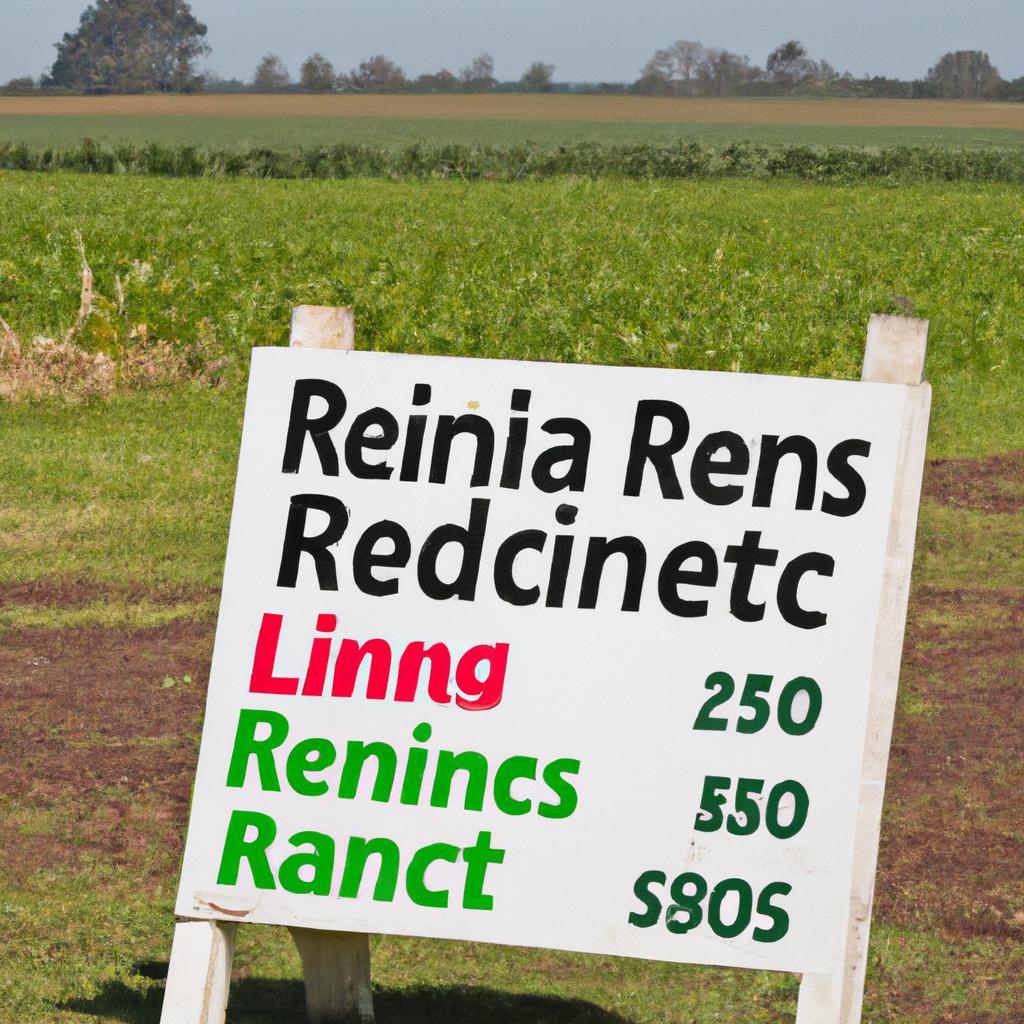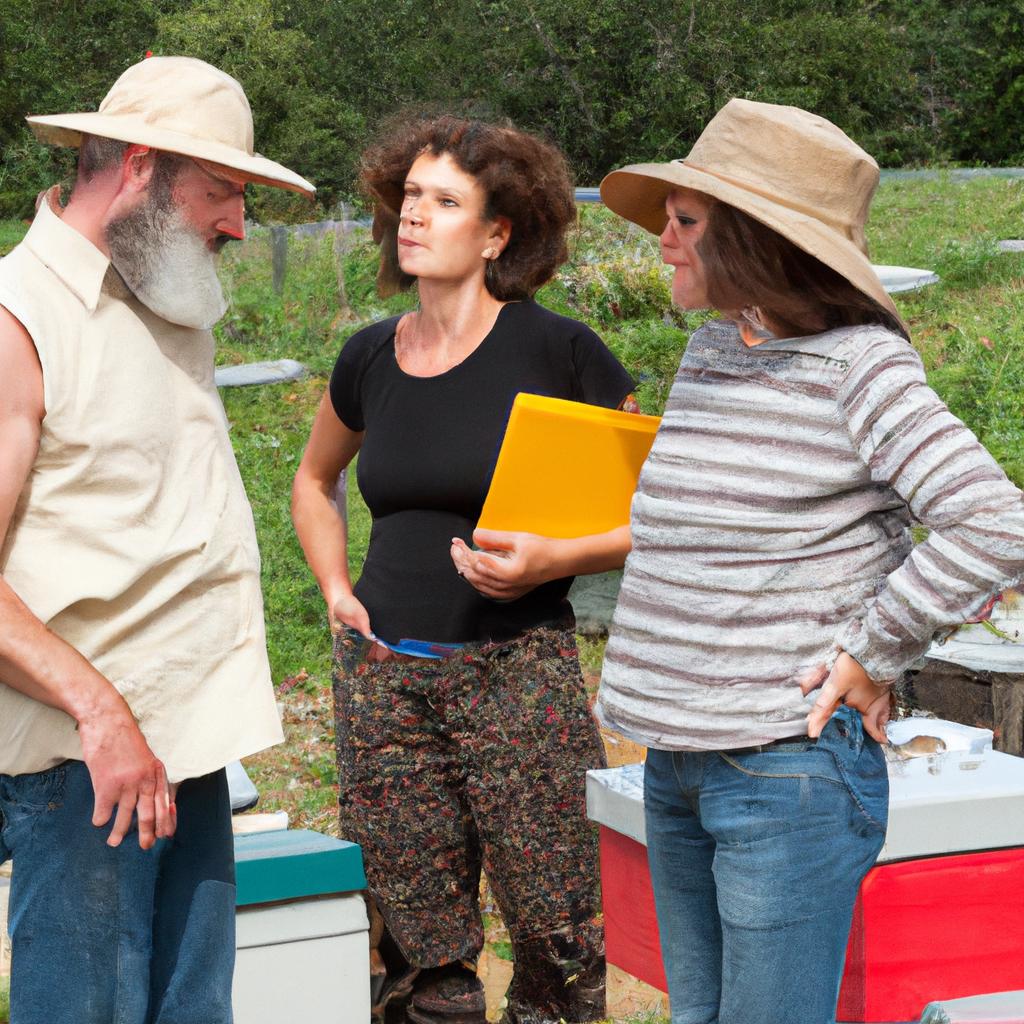Beekeeping is an important agricultural activity that involves keeping bees for their honey and other products. However, beekeepers need suitable land to keep their bees and produce honey. The cost of renting land for beekeeping can vary depending on several factors, such as the location, size, and type of land. In this article, we will explore the factors that affect the cost of renting land for beekeeping, the average rental costs for beekeepers, and alternative options for beekeepers without land.
Factors Affecting Land Rental Costs for Beekeepers

Several factors can affect the cost of renting land for beekeeping. One of the most crucial factors is the size of the land. The larger the land, the higher the rental cost. Beekeepers need a significant amount of land to keep their bees and produce honey, so they can expect to pay more for larger plots.
Another critical factor that affects land rental costs for beekeepers is the location of the land. Land located in urban or suburban areas tends to be more expensive than rural land. This is because land in urban areas is usually in high demand, and there is limited space available. Rural land may be cheaper because there is more of it available and fewer people are interested in renting it.
The type of land can also affect the rental cost for beekeepers. For example, land with a water source nearby may be more expensive because it provides a ready source of water for the bees. Land with a lot of trees or plants may be more desirable for beekeeping, which could also increase the rental cost.
The availability of resources is another factor that can affect land rental costs for beekeepers. For example, land with good soil quality and access to nectar-producing plants may be more attractive to beekeepers, which could increase the rental cost. Similarly, land with easy access to roads and other infrastructure may be more expensive because it is easier to transport materials and products.
Average Land Rental Costs for Beekeepers

The average rental costs for beekeepers vary depending on the location and size of the land. According to recent data, the national average rental cost for beekeeping land is around $100 to $150 per acre per year. However, rental costs can be higher or lower depending on the region.
Regional variations in rental costs are mainly due to the differences in land availability, demand, and production costs. For example, beekeepers in California can expect to pay higher rental costs due to the high demand for land and the high cost of production. In contrast, beekeepers in states like North Dakota or Montana may pay lower rental costs due to the low demand and lower production costs.
When compared to other agricultural land rental costs, beekeeping land rental costs are generally lower. For example, the national average rental cost for farmland is around $138 per acre per year, which is higher than the average rental cost for beekeeping land.
Negotiating Land Rental Costs for Beekeepers
Negotiating rental costs is an essential skill for beekeepers who want to save money on land rental. Here are some tips for negotiating rental costs:
- Research the market: Before negotiating rental costs, research the market to understand the current rental rates for beekeeping land in your area.
- Show your value: Explain to the landowner the benefits of having bees on their land, such as pollination services and increased biodiversity.
- Offer something in exchange: Offer to provide the landowner with a share of the honey or other beekeeping products in exchange for lower rental costs.
- Build a good relationship: Building a good relationship with landowners is essential for negotiating rental costs. Be professional, courteous, and respectful at all times.
In conclusion, renting land is an essential part of beekeeping, and the cost of renting land varies depending on several factors. Beekeepers can negotiate rental costs by researching the market, showing their value, offering something in exchange, and building a good relationship with landowners. By following these tips, beekeepers can save money on land rental and focus on producing high-quality honey and other beekeeping products.
Alternative Options for Beekeepers Without Land
If you are a beekeeper without land, there are several alternative options you can consider. One option is to join a beekeeping association. Many beekeeping associations have community apiaries where members can keep their bees and share resources. Joining a beekeeping association can also provide you with valuable information and support from experienced beekeepers.
Another alternative option for beekeepers without land is to rent space in community gardens. Community gardens are often located in urban areas and can provide beekeepers with a small plot of land to keep their bees. This option may be more affordable than renting private land and can also provide access to a variety of nectar-producing plants.
Utilizing public lands is also an option for beekeepers without land. Some public lands, such as national parks and forests, may allow beekeeping with a permit. This option can provide beekeepers with access to large areas of land and a diverse range of flora for their bees.
Conclusion
In conclusion, the cost of renting land for beekeeping can vary depending on several factors, including the location, size, and type of land. Beekeepers need suitable land to keep their bees and produce honey, but there are alternative options available to those without land. Joining beekeeping associations, renting space in community gardens, and utilizing public lands can provide beekeepers with access to land and resources at a lower cost. It is essential for beekeepers to consider the cost of land rental and explore alternative options to ensure the sustainability and profitability of their beekeeping operations. At BeeKeepinglove.com, we encourage beekeepers to explore all available options and make informed decisions that support the growth of their beekeeping businesses.
